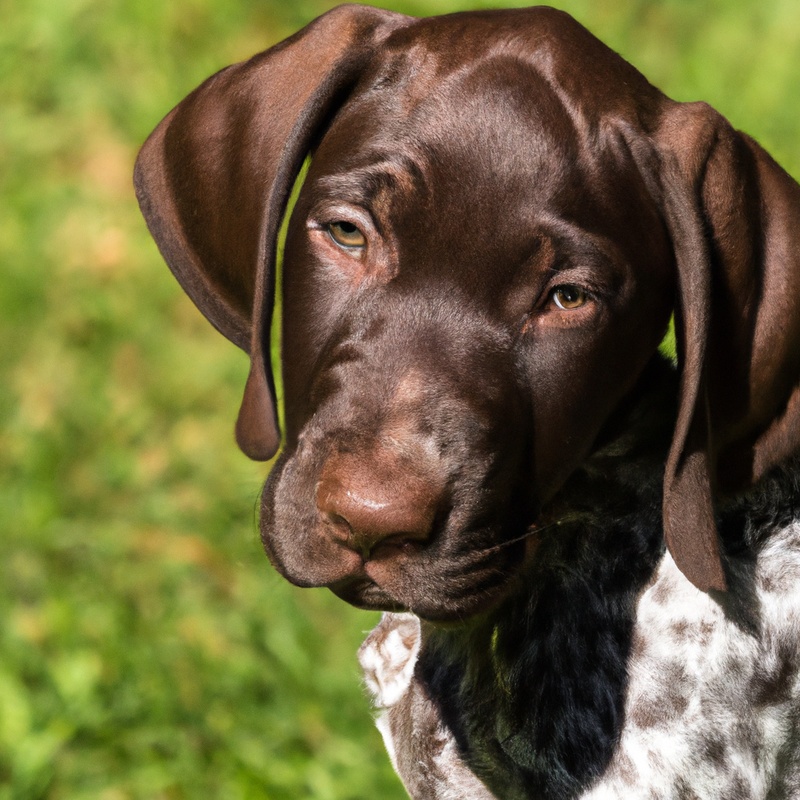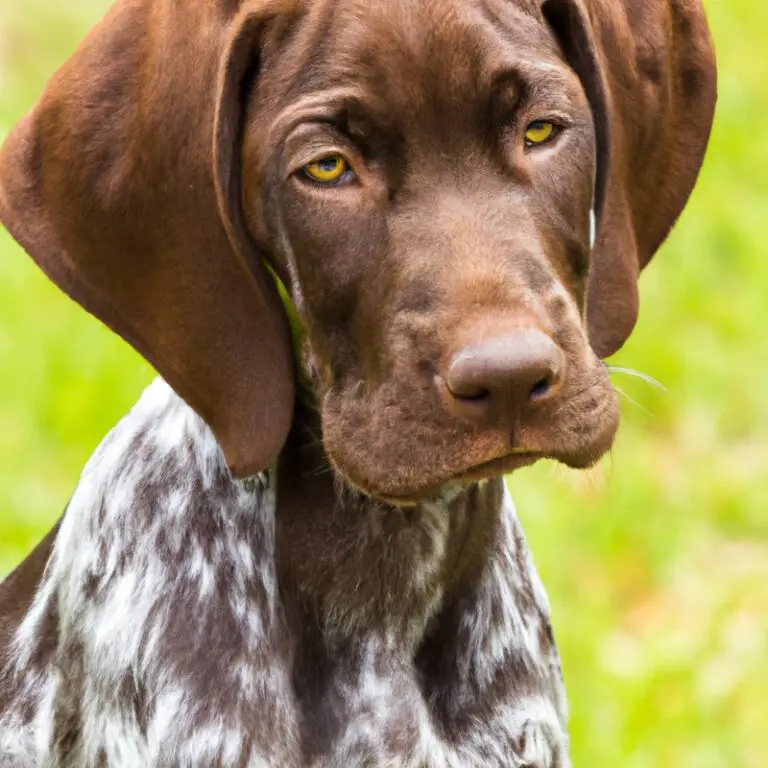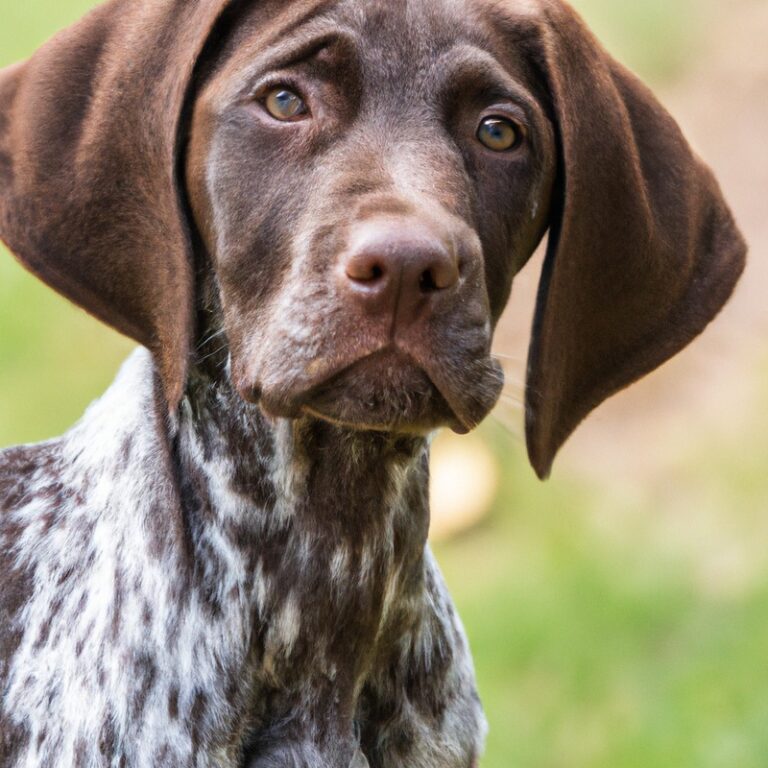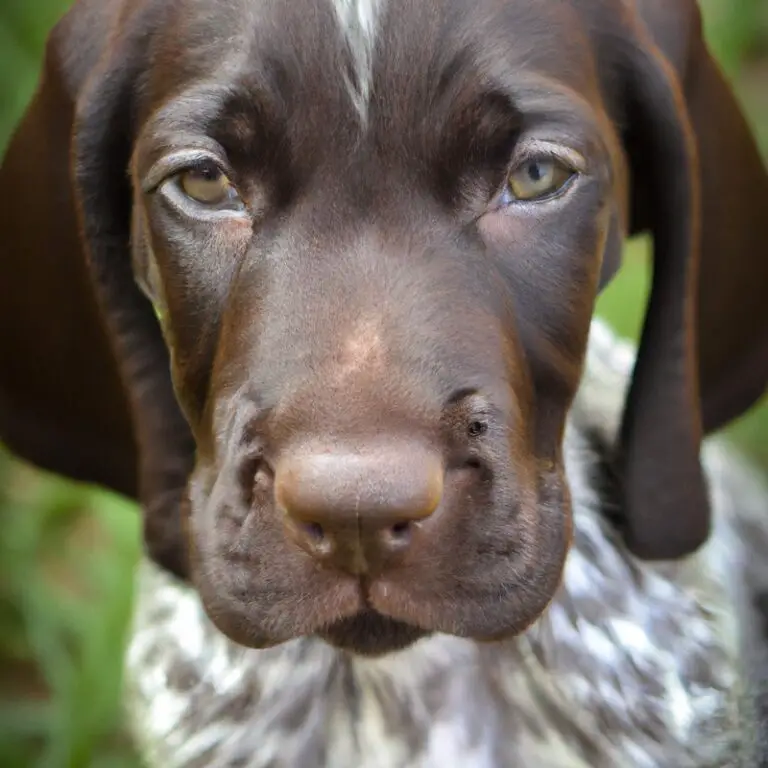How Can I Prevent My German Shorthaired Pointer From Digging In The Yard?
Key Takeaways:
- Provide mental and physical stimulation to curb digging behavior.
- Create designated digging areas or provide alternative outlets for energy.
- Consistently reinforce positive behavior and discourage digging through training and rewards.
- Address underlying causes such as boredom, anxiety, or seeking attention to prevent digging habits.
Are you tired of stepping outside only to find your beautiful yard turned into a lunar crater field by your German Shorthaired Pointer’s digging escapades? I hear you, and I’ve got your back.
As an expert in dog behavior and training, I’ve seen firsthand how this breed’s insatiable digging instincts can wreak havoc on gardens and landscape.
But fear not! In this article, I’ll share effective tips, training techniques, and strategies to prevent your German Shorthaired Pointer from digging up your yard. Get ready to have a pristine and intact outdoor space once again!
| Prevention Method | Description |
| Provide mental stimulation | Engage your German Shorthaired Pointer in mental activities such as puzzle toys or obedience training to divert their energy away from digging. |
| Exercise regularly | Ensure your dog receives enough physical exercise to tire them out, reducing their desire to dig out of boredom. |
| Create a designated digging area | Set up a designated area in your yard where your dog is allowed to dig, such as a sandbox filled with loose soil or sand. |
| Supervise and redirect | Keep an eye on your dog while they are in the yard and redirect their attention whenever they start to dig, using toys or treats. |
| Provide shade and shelter | Ensure that your yard has shaded areas and a comfortable dog house to provide relief from hot weather or rain, as excessive heat or discomfort may trigger digging. |
| Eliminate pests | Address any pest issues in your yard, such as ants or rodents, as these can attract your dog to dig in search of prey. |
| Bury chicken wire | Bury chicken wire at the perimeter of your yard or specific areas where digging is a problem. The wire’s texture will deter your dog from digging. |
Understanding the Digging Behavior of German Shorthaired Pointers
The Instinctual Reasons Behind Digging Behavior
German Shorthaired Pointers have a natural instinct to dig, and there are a few reasons behind this behavior. First, it’s important to understand that these dogs are hunting breeds, and digging is a part of their genetic makeup.
In the wild, they would dig to create burrows or to uncover prey.
Even though they may not be hunting in your backyard, the instinct to dig is still strong. Another reason for their digging behavior is that it can be a form of entertainment or mental stimulation.
Digging provides them with a way to burn off excess energy and keep themselves occupied.
Additionally, digging can also be a way for German Shorthaired Pointers to keep cool. By digging a hole, they can find cooler soil to lie in, especially during hot weather.
It’s important to recognize and understand these instinctual reasons behind their digging behavior in order to effectively address and prevent it.
Factors Influencing Digging Behavior in German Shorthaired Pointers
When it comes to understanding the digging behavior of German Shorthaired Pointers, there are several factors that can influence their tendency to dig in your yard. First and foremost, it’s important to consider their breed traits.
German Shorthaired Pointers are known for their high energy levels and hunting instincts, which can make them more prone to digging.
Another factor to keep in mind is the dog’s age. Puppies, in particular, may engage in digging as a form of exploration and play.
They are also more likely to dig when they are bored or not getting enough exercise.
Environmental factors can also play a role in a German Shorthaired Pointer’s digging behavior. For example, if the yard is too hot or lacks shade, the dog may dig to create a cool spot for themselves.
Additionally, if there are small animals or pests in the yard, the dog may be motivated to dig in an attempt to catch them.
Lastly, it’s important to consider the dog’s overall mental and physical stimulation. German Shorthaired Pointers are an intelligent and active breed.
If they are not provided with enough mental and physical exercise, they may resort to digging as a way to release their pent-up energy or alleviate boredom.
By taking into account these factors, you can begin to address and prevent your German Shorthaired Pointer’s digging behavior.
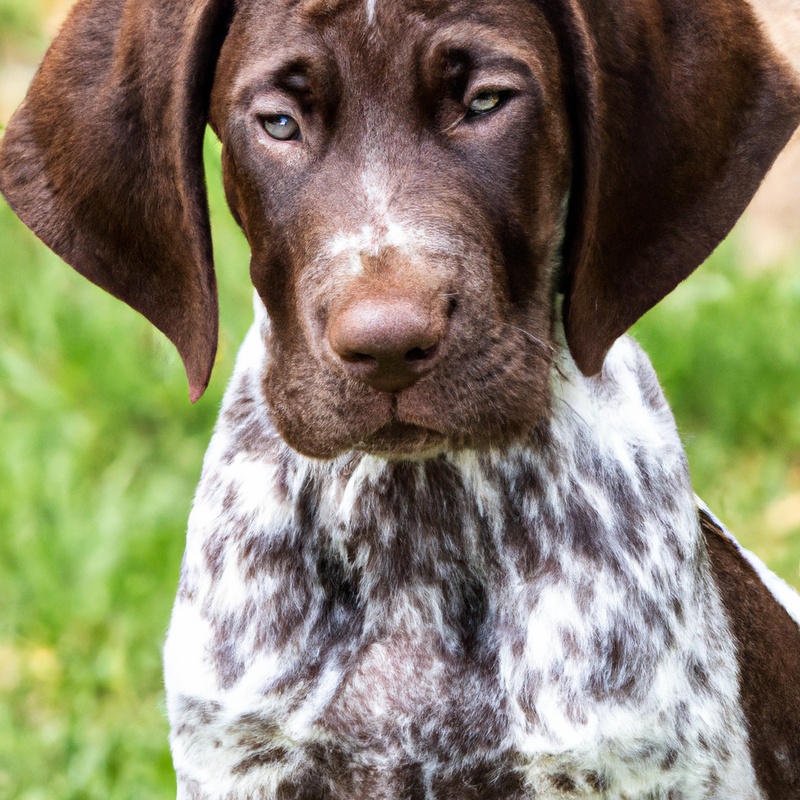
Reasons Why You Should Prevent Your German Shorthaired Pointer from Digging
Potential Damage to Your Yard and Garden
Potential Damage to Your Yard and Garden Let’s talk about the potential damage that your German Shorthaired Pointer can cause to your yard and garden if they become avid diggers. It’s important to be aware of the potential consequences so that you can take preventive measures.
First and foremost, your yard may end up looking like a battlefield with holes scattered all over the place.
These holes not only ruin the aesthetics of your outdoor space but can also be a tripping hazard for you and your family. Additionally, the digging behavior of your dog can wreak havoc on your carefully tended garden.
Your beautiful flowers, vegetable plants, and shrubs may fall victim to your dog’s digging passion, leaving your garden in ruins.
Moreover, if your German Shorthaired Pointer manages to dig deep enough, they may damage underground structures such as irrigation systems, utility lines, or even the foundation of your home. Repairing these damages can be costly and time-consuming.
To avoid these potential problems, it is essential to take steps to prevent your dog from digging in the first place.
This can include providing them with enough mental and physical stimulation, designating a specific digging area, and supervising them when they are outside. By being proactive and implementing preventive measures, you can protect your yard and garden from the potential damage caused by your German Shorthaired Pointer’s digging behavior.

Health and Safety Concerns for Your Dog
Health and Safety Concerns for Your Dog Taking care of your dog’s health and safety is of utmost importance. Here are a few key concerns to keep in mind:
- Injury: Digging can lead to injuries such as cuts, scrapes, or even broken nails. These wounds can get infected if not treated promptly. It’s essential to prevent your dog from digging to minimize the risk of injury.
- Escaping: If your dog digs under a fence, it can easily escape and get lost or injured. Ensure that your yard is secure and that there are no escape routes for your furry friend.
- Poisonous Substances: While digging, your dog may come across harmful substances, such as pesticides or toxic plants. These can pose serious health risks if ingested. By preventing your dog from digging, you can reduce the chances of them encountering these substances.
- Parasites and Infections: Digging can expose your dog to parasites like fleas, ticks, or worms. Additionally, if your dog digs in contaminated soil or garbage, they can contract infections. Regular preventive measures like flea and tick control and keeping your yard clean can help protect your dog from these health risks.
Tips to Prevent Digging in German Shorthaired Pointers
Providing Adequate Exercise and Mental Stimulation
One of the most effective ways to prevent your German Shorthaired Pointer from digging up your yard is by providing them with adequate exercise and mental stimulation. Regular exercise is crucial for this energetic breed, as it helps release their pent-up energy and reduces their desire to dig.
Take your GSP for daily walks, runs, or engage in playtime in a secured area.
Additionally, mental stimulation is essential to keep them mentally satisfied. Incorporate interactive toys, puzzle games, and obedience training sessions to challenge their minds and prevent boredom.
A tired and mentally stimulated dog is less likely to resort to digging as a way to entertain themselves.
Creating a Digging Alternative for Your Dog
Creating a digging alternative for your dog can help redirect their natural urge to dig and protect your yard. First and foremost, designate a specific area where your dog is allowed to dig, such as a sandbox or a designated spot in the yard.
Fill this area with loose soil or sand to make it enticing for your dog.
Secondly, bury a few of their favorite toys or treats in the designated digging area to encourage them to dig there. Additionally, provide your dog with plenty of mental and physical stimulation through playtime and regular exercise, as boredom can often lead to excessive digging.
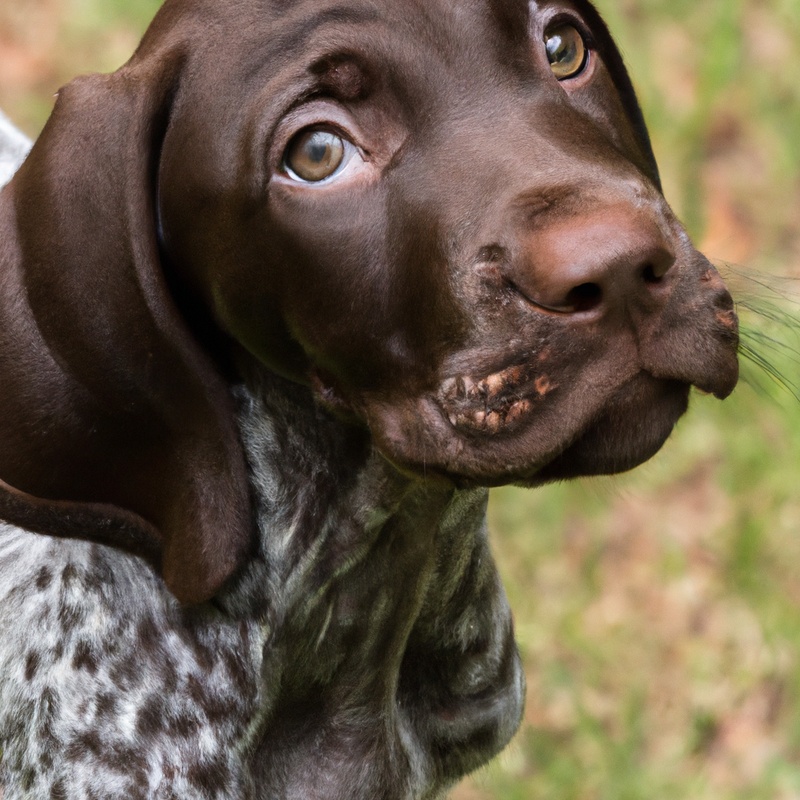
Supervising and Redirecting Digging Behavior
Supervising and Redirecting Digging Behavior When it comes to preventing your German Shorthaired Pointer from digging in the yard, supervising and redirecting their behavior is key. First and foremost, keep an eye on your dog when they are outside to catch any digging attempts in the act.
If you notice your dog starting to dig, immediately redirect their attention to a more appropriate activity, such as playing with a toy or engaging in interactive play with you.
Make sure to praise and reward them for engaging in the preferred behavior. Another effective strategy is to provide your dog with a designated digging area, such as a sandbox or a designated patch of the yard.
Encourage your dog to dig there by burying toys or treats for them to find.
This helps satisfy their natural instinct to dig while keeping your yard intact. Supervising and redirecting your German Shorthaired Pointer’s digging behavior will help them understand what is acceptable and what is not.
With consistent management, patience, and positive reinforcement, you can successfully prevent excessive digging in your yard.
Addressing Underlying Behavioral Issues
Addressing underlying behavioral issues is crucial when it comes to preventing your German Shorthaired Pointer from digging in the yard. By understanding and addressing the root causes of this behavior, you can effectively discourage your dog from engaging in destructive digging.
One important aspect is ensuring that your dog gets enough mental and physical stimulation.
Regular exercise, such as daily walks or play sessions, can help alleviate boredom and redirect your dog’s excess energy. Mental stimulation, such as puzzle toys or training sessions, can also keep your dog occupied and satisfied.
Another key aspect is providing proper training and socialization.
Teaching your dog basic obedience commands, such as “sit” and “stay,” can help establish your role as the leader and reinforce boundaries. Socializing your dog with other dogs and people can reduce anxiety and prevent undesirable behaviors.
If your dog is digging due to fear or anxiety, it is important to address these underlying issues.
Consult with a professional dog trainer or behaviorist who can help you develop a behavior modification plan tailored to your dog’s specific needs. Lastly, ensure that your dog has a designated area for digging, such as a sandbox or specific spot in the yard.
This can redirect their natural digging instincts to an appropriate location, reducing the temptation to dig in unwanted areas.
Training Techniques to Discourage Digging
Positive Reinforcement Training Methods
Positive reinforcement training methods are highly effective in discouraging digging behavior in German Shorthaired Pointers. Here are some key techniques:
- Reward good behavior: When your dog refrains from digging or focuses on other activities, praise and reward them with treats, toys, or playtime. This positive reinforcement will reinforce their good behavior and make them less likely to dig.
- Provide alternative outlets: Dogs often dig out of boredom or excess energy. By offering appropriate outlets for their energy, such as daily walks, interactive toys, or puzzle games, you can redirect their energy and prevent them from digging.
- Create a designated digging spot: Allocate a specific area in your yard where it is permissible for your dog to dig. Bury toys or treats in this spot to make it appealing. Encourage them to use this area by redirecting them when they dig elsewhere.
- Make digging unappealing: Use deterrents like citrus peels, rocks, or chicken wire to cover areas where your dog likes to dig. This will make digging an unpleasant experience and discourage them from engaging in this behavior.
Using Deterrents and Distractions
Using deterrents and distractions is an effective approach to prevent your German Shorthaired Pointer from digging in the yard. Here are a few strategies to consider:
- Utilize deterrents: Use materials or techniques that discourage digging. Place rocks or chicken wire in the areas your dog frequently digs to make it less appealing. You can also try sprinkling cayenne pepper or citrus peels on the ground, as dogs dislike the strong smell.
- Provide distractions: Keep your dog engaged and mentally stimulated to redirect their energy away from digging. Offer interactive toys, puzzle feeders, or engage in regular play sessions to help release excess energy.
- Designate a digging area: Create a specific space in your yard where your dog is allowed to dig, such as a sandbox or a designated patch of soft soil. Encourage them to use this area by burying toys or treats for them to find.
Seeking Professional Training Help if Needed
If you’ve tried various training techniques to prevent your German Shorthaired Pointer from digging in the yard and haven’t seen any improvement, it might be time to consider seeking professional training help. Professional trainers have the expertise and experience to address specific behavioral issues and provide targeted training solutions.
They can assess your dog’s behavior, identify the root cause of the digging, and develop a customized training plan to effectively discourage this behavior.
Creating a Dig-Friendly Yard for German Shorthaired Pointers
Designating a Specific Digging Area in Your Yard
Designating a specific digging area in your yard can be a great way to prevent your German Shorthaired Pointer from digging up your entire yard. Instead of trying to completely stop their natural digging instinct, you can redirect it to a designated spot.
Here’s how to do it:
- Choose a suitable area: Find a spot in your yard where it’s okay for your dog to dig. Consider an area with soft soil or sand, away from plants or important structures.
- Encourage with positive reinforcement: Show your dog the designated area and encourage them to dig there. Use positive reinforcement techniques like treats or praise when they dig in the right spot.
- Make it enticing: Bury some treats, toys, or bones in the designated area to make it more appealing for your pup to dig there. This will help them associate the area with positive experiences.
- Deterrence for other areas: If your dog tries to dig in other parts of the yard, discourage them gently. Redirect their attention to the designated area and reward them when they dig there instead.
Installing Protective Measures for Sensitive Garden Areas
Installing protective measures for sensitive garden areas is essential to prevent your German Shorthaired Pointer from causing damage. Here are some practical steps to consider:
- Install barriers: Use fencing or plant hedges to create physical barriers around delicate garden areas. This will help keep your dog away from sensitive plants and vulnerable flowerbeds.
- Utilize paving stones: Lay down paving stones or create paths in high-traffic areas to redirect your dog’s movement. This can help prevent them from trampling or digging up your plants.
- Provide designated digging areas: Consider creating a specific space where your dog is allowed to dig, such as a designated sandpit. Fill it with soft sand, bury bones or toys, and encourage your dog to dig there instead of the garden.
- Use deterrents: Apply dog-friendly repellents or natural deterrents, such as vinegar or citrus scents, to areas that you want to protect. This can discourage your dog from approaching or digging in sensitive garden areas.
- Keep your dog mentally stimulated: Ensure your German Shorthaired Pointer receives enough mental and physical exercise to help reduce their desire to dig. Provide plenty of toys, interactive games, and regular walks to keep them engaged and satisfied.
Using Digging Toys and Puzzles to Occupy Your Dog
Using digging toys and puzzles is a great way to keep your German Shorthaired Pointer occupied and deter them from digging up your yard. Dogs naturally dig because it’s a behavior rooted in their instincts.
So, instead of trying to completely stop them from digging, give them an appropriate outlet for this behavior.
Invest in digging toys specifically designed for dogs, such as interactive sandboxes or digging pits. These toys simulate the digging experience while protecting your yard.
Additionally, providing your dog with puzzle toys filled with treats or food can keep them mentally engaged and entertained, reducing their inclination to dig.
Remember to rotate the toys regularly to keep your dog’s interest levels high. This way, they won’t get bored and resort to digging up your yard for entertainment.
By providing them with these fun and stimulating activities, you can save your yard from being turned into a digging pit and give your pooch a productive outlet for their natural instincts.
Common Mistakes to Avoid when Preventing Digging
Punishing or Scolding Your Dog for Digging
Punishing or scolding your dog for digging is not an effective approach to address the issue. Dogs don’t understand punishment in the same way humans do, and it can create fear or anxiety in your furry friend.
Plus, scolding them after the fact won’t deter them from digging in the future.
It’s best to focus on positive reinforcement and redirect their behavior. Provide your German Shorthaired Pointer with plenty of exercise, mental stimulation, and a designated digging area.
Reward them when they use that area, and redirect them gently if they start digging elsewhere.
Neglecting Exercise and Mental Stimulation Needs
One of the common mistakes to avoid when preventing your German Shorthaired Pointer from digging in the yard is neglecting their exercise and mental stimulation needs. These active and intelligent dogs require plenty of physical activity to burn off their energy and stay mentally stimulated.
Neglecting exercise can lead to boredom and pent-up energy, which can manifest in destructive behaviors like digging.
Make sure to provide daily exercise in the form of walks, runs, or playtime in a securely fenced area. Engage your dog in interactive games and provide them with toys that challenge their minds.
Furthermore, neglecting mental stimulation needs can also contribute to digging behavior.
German Shorthaired Pointers thrive when given jobs to do or puzzles to solve. Incorporate training sessions, obedience classes, and scent work activities into their routine.
This will keep their minds engaged and help prevent them from resorting to digging out of boredom.
Inconsistency in Training and Supervision
One common mistake to avoid when preventing your German Shorthaired Pointer from digging in the yard is inconsistency in training and supervision. Dogs thrive on consistency, so it’s important to establish clear rules and boundaries from the start.
If you allow your dog to dig sometimes and scold them at other times, it can create confusion and mixed signals.
Consistently reinforce the behavior you want to see by rewarding your dog when they behave appropriately and redirecting their attention when they start digging. Additionally, supervision plays a key role in preventing digging.
Keep an eye on your dog when they’re outside and intervene immediately if they start digging.
By consistently supervising and redirecting their behavior, you can help break the digging habit and create a well-behaved and happy pup.
Seeking Professional Help for Digging Issues
Consulting a Professional Dog Trainer
If your German Shorthaired Pointer just won’t stop digging up your yard, it might be time to call in the professionals. Consulting a professional dog trainer can be a great way to address this issue and get your pup on the right track.
These trainers have the knowledge and experience to assess your dog’s behavior and give you personalized guidance on how to prevent digging.
They can teach you effective training techniques and provide recommendations for toys, exercises, and mental stimulation to keep your dog occupied and less inclined to dig. So if you’re feeling overwhelmed or frustrated, don’t hesitate to reach out to a professional trainer who can help you and your furry friend find a solution together.
Working with a Veterinary Behaviorist
If you’re dealing with a German Shorthaired Pointer who just won’t stop digging up your yard, working with a veterinary behaviorist can be a game-changer. They are professionals who specialize in animal behavior and can provide expert guidance to address your dog’s digging habits.
A veterinary behaviorist will assess your dog’s behavior and tailor a comprehensive plan to address the underlying causes of their digging.
They may recommend techniques like positive reinforcement training, environmental enrichment, and mental stimulation to redirect their energy and discourage digging behavior. By collaborating with a veterinary behaviorist, you’ll have access to their expertise and experience in modifying your dog’s behavior.
They can help you develop a personalized plan that focuses on addressing the root causes of digging and provides practical, effective strategies to prevent it in the future.
Final Verdict
Understanding the digging behavior of German Shorthaired Pointers is crucial in effectively preventing this behavior in your yard. By addressing the instinctual reasons behind digging and considering the factors that influence your dog’s behavior, you can take proactive steps to prevent damage and keep your dog safe.
From providing adequate exercise and mental stimulation to creating a digging alternative, there are practical tips to discourage digging.
Remember to use positive reinforcement training techniques and seek professional help if needed. By creating a dig-friendly yard and avoiding common mistakes, you can successfully prevent your German Shorthaired Pointer from digging in your yard.
Rest assured that these strategies are based on reliable information and expert advice, ensuring the best outcomes for you and your furry friend.
Trust in these practices and implement them consistently for a harmonious and dig-free environment.

